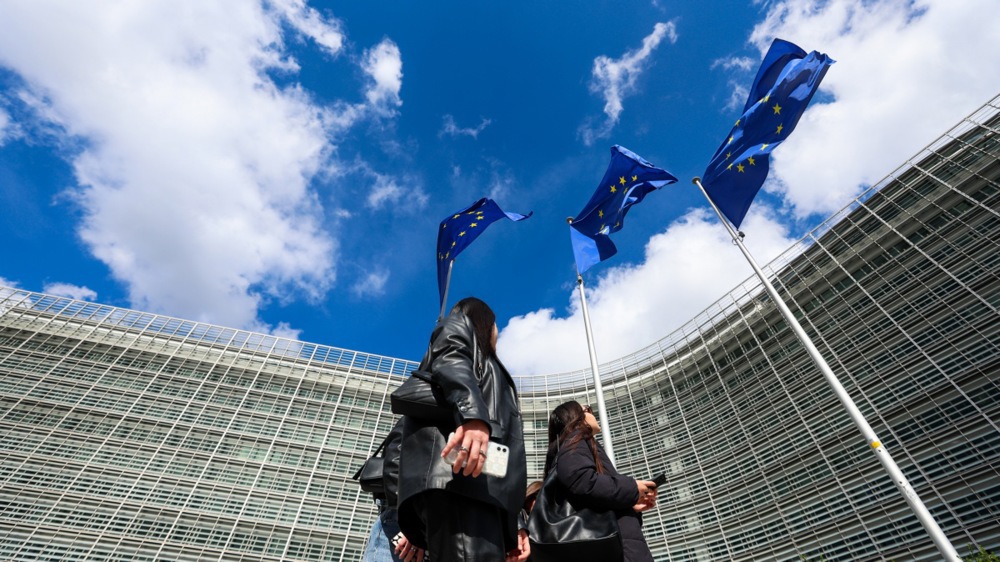Low-cost airline Ryanair said it will end its growth plans in Belgium after the country hiked its aviation tax from €2 to €5 per flight.
Belgian politicians and NGOs have argued that the increase, applicable since July 29, was primarily symbolic, given it would likely have little effect on air travel volume.
On August 27, though, Michael O’Leary, Ryanair’s CEO, said in a press statement that the airline would freeze expansion in Belgium, describing the tax rise as “stupid”.
The new levy, as well as the existing €10 tax for short-distance flights such as to Paris or Amsterdam, was part of a Belgian Government agreement in February 2025 when the then-newly elected ministers formed a coalition and inked a number of measures, including aviation taxation.
The spokesperson for David Clarinval, Belgian Deputy Prime Minister and Minister of the Economy, told Brussels Signal on August 28 that the idea was for the aviation sector to be treated more in line with other industries.
“Aviation, until now lightly taxed compared to other modes of transport, should contribute more to its negative externalities,” he said.
He added that the tax rise responded to the “reality that climate change concerns everyone, citizens, businesses and public authorities, from the local to the global level”.
Ryanair communication director Jade Kirwan told Brussels Signal: “Sadly, there will be zero Ryanair growth in Belgium this winter as Zaventem keeps raising its already high fees and the Belgium Government has stupidly raised aviation tax by 150 per cent, making Belgian tourism even more uncompetitive.”
Joeri Thijs from Greenpeace Belgium said the levy was likely to have a modest impact on air travel volume.
“And claims about harming the Belgian economy are exaggerated,” he told this website.
Clarinval’s spokesperson said the tax hike was so low that it would not significantly affect Belgium’s attractiveness in terms of tourism.
“The greatest danger for competitiveness lies in the measures that will be taken within the framework of the NECP [the National Energy and Climate Plan] and if Europe decides to reduce emissions by 90 per cent by 2040.
“That is where the danger lies for competitiveness,” he added, referring to the EU plan that every member state must submit to show how it will achieve the climate and energy targets.
“This tax should not be understood as Belgium prioritising climate over competitiveness,” the spokesperson said.
Herwig Schuster, Greenpeace mobility expert said: “A €5 tax is rather symbolic but of course it is better than no tax since it slightly reduces the unfair taxing schemes between aviation and rail“.
Schuster estimated it could raise €165 million annually based on around 35 million passengers a year.
“Ideally, this tax is used as additional sourcing for ‘green’ transport”, he added.
Ryanair had already closed its base at Brussels Airport Zaventem in 2022, citing high charges, and expanded instead at Charleroi, a lower-cost airport further from the capital.
Belgian business newspaper L’Echo reported August 27 that O’Leary warned that if Belgium did not remove its tax, there would be no more growth in Charleroi either.
In another press release on April 3, though, the group announced that three new routes had been added to the list of destinations available from Charleroi airport.
Clarinval’s spokesperson said: “The number of passengers has been constantly increasing, excluding Covid, for 20 years.
“Charleroi airport has managed to rise from 200,000 passengers at the end of the last century to more than 10 million in 2024.
“I have confidence in the regional authorities to continue its long-term expansion strategy.”
Across Europe, Belgium’s levy remains modest. Germany charges between €15.53 and €70.83 depending on distance, generating about €500 million annually with little effect on demand, according to German public broadcaster ZDF.
A 2025 report by Swiss aviation industry NGO Air Transport Action Group (ATAG) highlighted that ticket levies, fuel taxes, or frequent flyer levies could raise revenue but might disproportionately affect developing nations and risk what it termed fragmented regional taxation.
Another study in June 2019 ordered by the European Commission found that moderate aviation taxes typically cut passenger numbers by about 10 per cent, mainly on cheap short-haul tickets, with negligible economic effects if the revenue is reinvested.
It stated that France, Austria and the UK applied similar levies, and 17 EU states charged VAT on domestic flights.
Cheap tickets generally disproportionately benefit a narrow group, Thijs said, as “cheap flights overwhelmingly benefit low-cost airlines themselves and a small slice of frequent flyers, while most ordinary citizens rarely use air travel”.
Consumer advocates cautioned in August this year that, while taxes may curb short-haul flights, passengers’ rights should remain fully protected, warning against any measures that could shift costs or burdens onto travellers.
This debate came as the European Commission has been considering reforms to EU air-passenger compensation rights, which critics said would raise delay thresholds, cut payouts and further shift responsibility onto passengers, highlighting broader pressures on travellers across Europe.
“Claims about passengers’ rights being violated are more rhetorical than legal fact, travellers remain free to choose their means of transport, and international aviation is not exempt from public taxes elsewhere in the world,” Thijs said.





